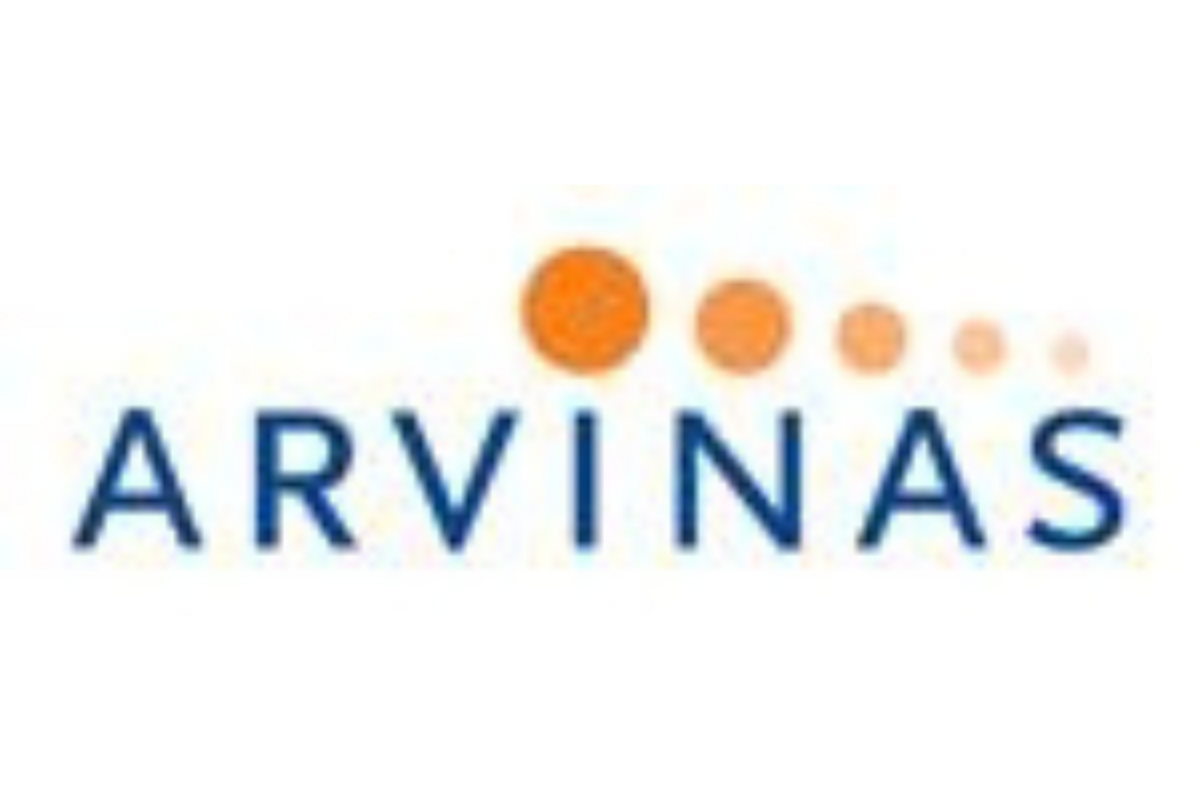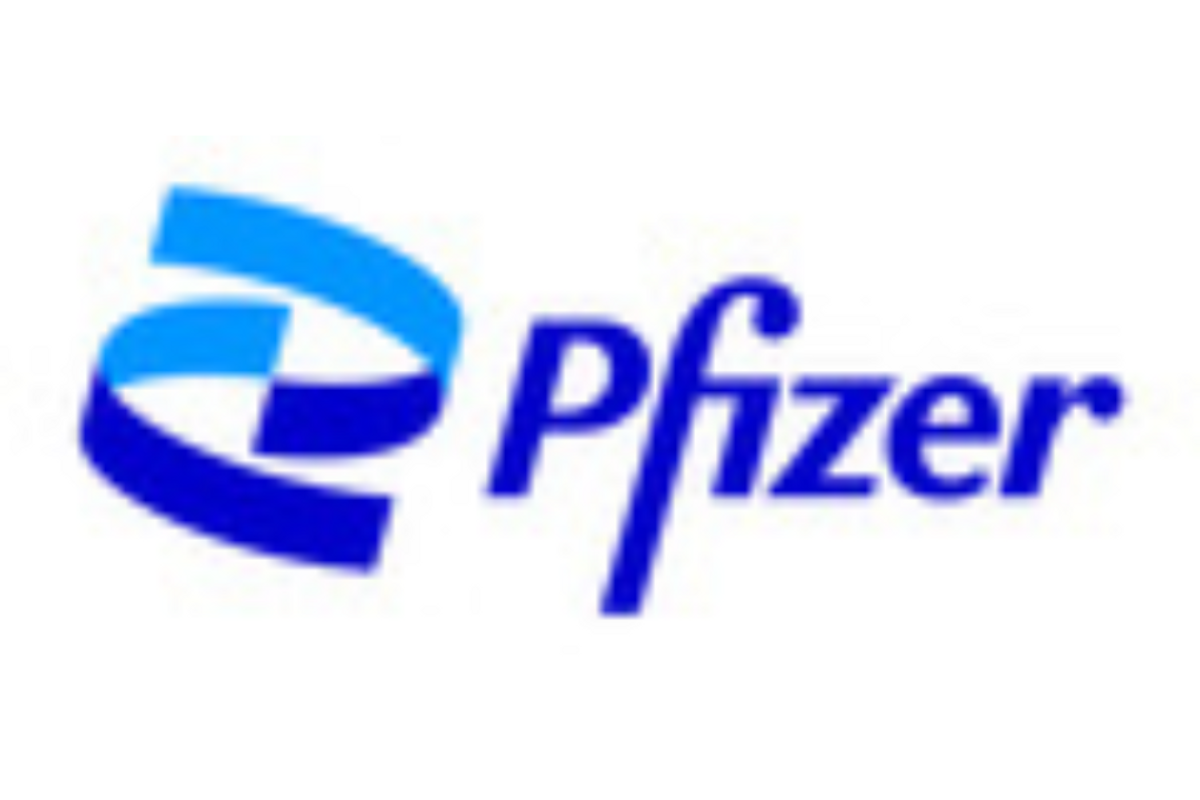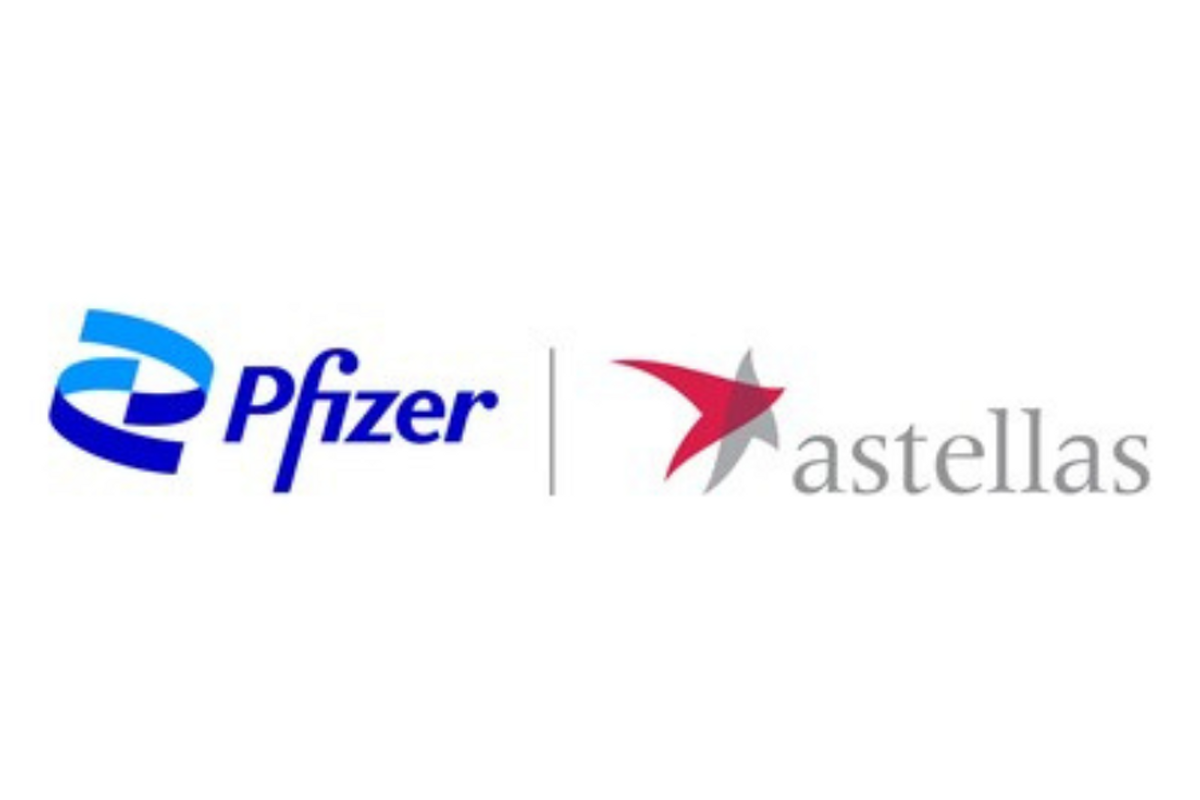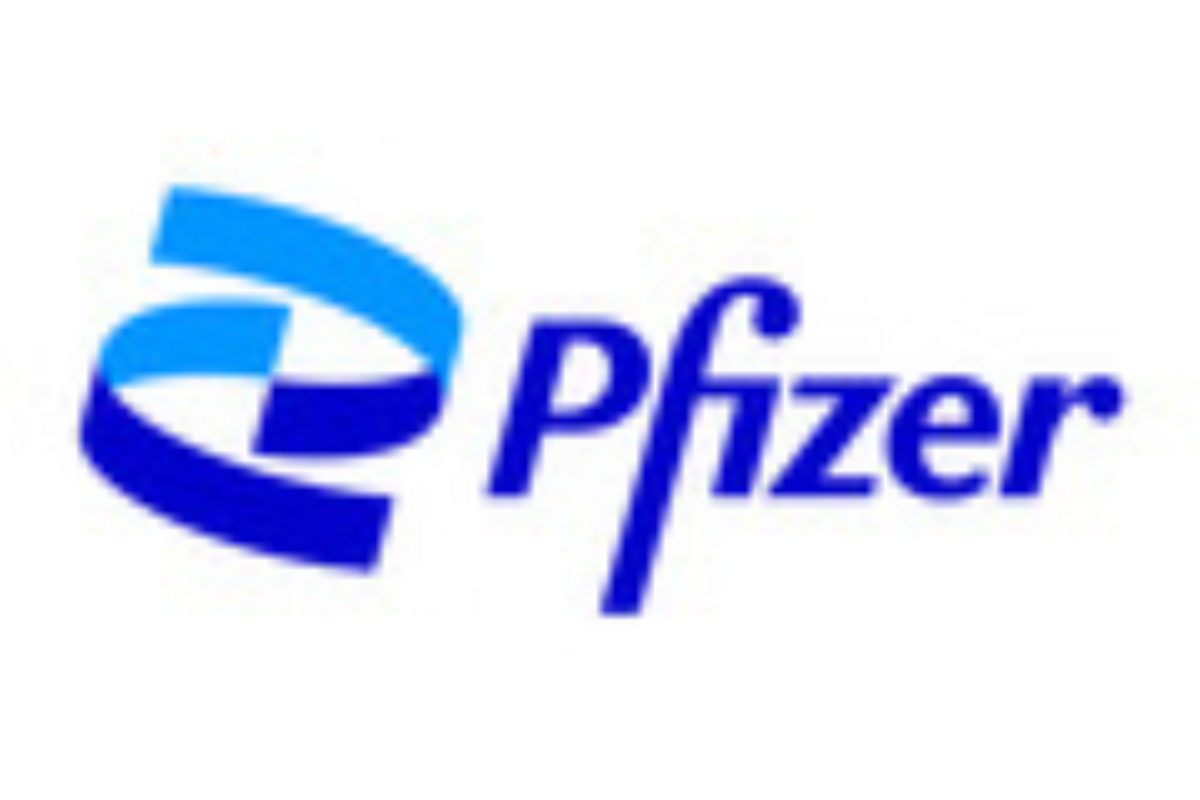- Pivotal Phase 3 CREST trial results show a 32% reduction in the risk of disease-related events, including high-grade disease recurrence or progression, with sasanlimab in combination with standard of care (SOC) Bacillus Calmette-Guérin (BCG) regimen compared to SOC alone
- Sasanlimab, a subcutaneously administered PD-1 inhibitor, in combination with BCG represents the first potential treatment advancement for BCG-naïve, high-risk non-muscle invasive bladder cancer in more than 30 years
- Results have been shared with global health authorities to support potential regulatory filings
Pfizer Inc. (NYSE: PFE) today announced results from the pivotal Phase 3 CREST trial of sasanlimab, an investigational anti-PD-1 monoclonal antibody (mAb), in combination with standard of care (SOC) Bacillus Calmette-Guérin (BCG) as induction therapy with or without maintenance in patients with BCG-naïve, high-risk non-muscle invasive bladder cancer (NMIBC). The trial met its primary endpoint of event-free survival (EFS) by investigator assessment, demonstrating a clinically meaningful and statistically significant improvement with sasanlimab in combination with BCG (induction and maintenance) as compared to BCG alone (induction and maintenance): Hazard Ratio (HR) of 0.68; 95% Confidence Interval (CI), 0.49-0.94; 2-sided p=0.019; median EFS not yet reached. These findings show a 32% reduction in risk of disease-related events, including high-grade disease recurrence or progression, with the sasanlimab combination regimen as compared with SOC treatment alone. Pre-specified subgroup analyses for patients harboring higher risk disease showed consistent benefit with EFS HR of 0.63 (0.41, 0.96) for T1 disease, and EFS HR 0.53 (0.29, 0.98) for those with CIS disease.
EFS was a composite endpoint defined as the time from randomization to the earliest of recurrence of high-grade disease, progression of disease, persistence of carcinoma in situ (CIS), or death due to any cause. The probability of being event-free at 36 months was 82.1% (95% CI, 77.4-85.9) with sasanlimab in combination with BCG (induction and maintenance), and 74.8% (95% CI, 69.7-79.2) with BCG alone (induction and maintenance). Results from the CREST trial are being presented today in a plenary oral presentation at the 2025 American Urological Association (AUA) Annual Meeting.
"New bladder cancer treatment options that help reduce rates of disease recurrence or progression are long overdue. Up to 50% of patients with high-risk non-muscle invasive bladder cancer may experience failure of BCG intravesical immunotherapy, yet it has been the standard of care after tumor resection for decades," said Neal Shore, M.D., FACS, Medical Director for START Carolina Research Center, and lead investigator for the CREST trial. "These Phase 3 results show that combining sasanlimab with BCG induction and maintenance therapy earlier in the course of the disease significantly prolonged event-free survival, highlighting the value and potential of sasanlimab in combination with BCG to redefine the treatment paradigm and reduce the burden for patients."
As the ninth most common cancer worldwide, bladder cancer accounts for up to 220,000 deaths annually. 1,2 NMIBC, in particular, represents approximately 75% of all bladder cancer cases. 3 In the U.S., it is estimated that about 38,000 people have high-risk NMIBC. 4 While BCG treatment has been shown to reduce the risk of tumor recurrence, approximately 40-50% of patients with high-risk NMIBC receiving BCG will eventually have disease recurrence or progression despite therapy. 5-7
"Today's pivotal Phase 3 CREST results offer a much-needed therapeutic breakthrough and spotlight sasanlimab as the first immunotherapy combination with BCG to significantly improve outcomes for patients with BCG-naïve, high-risk NMIBC in over three decades," said Megan O'Meara, M.D., Interim Chief Development Officer, Pfizer Oncology. "The CREST findings are especially impactful for these patients with early-stage cancer who may benefit the most from innovative treatment regimens, including a subcutaneous immune checkpoint inhibitor, that delay disease recurrence or progression. These results underscore our long-standing commitment to patients with bladder cancer across all stages of the disease. We look forward to working with global regulatory authorities to potentially bring sasanlimab as an important new treatment option to patients with high-risk NMIBC."
Sasanlimab in combination with BCG (induction only) did not result in prolongation of EFS when compared to BCG alone (induction and maintenance), a key secondary endpoint: HR of 1.16; 95% CI, 0.87-1.55; 2-sided p=0.312, underscoring the need for BCG maintenance not only as a component of SOC treatment but also in combination with sasanlimab. Early interim analysis for the key secondary overall survival (OS) endpoint suggested no difference between treatment arms, with a median follow-up of 40.9 months. The study continues for survival follow-up until the final analysis. Complete response (CR) and duration of CR were additional secondary endpoints for patients with CIS at randomization. The CR rate achieved at any time was 89.8% with sasanlimab in combination with BCG (induction and maintenance) and 85.2% with BCG alone (induction and maintenance). Notably, for those patients with CIS at randomization who achieved a CR, the probability of remaining in CR at 36 months was 91.7% with sasanlimab in combination with BCG (induction and maintenance) compared to 67.7% with BCG alone (induction and maintenance).
The overall safety profile of sasanlimab in combination with BCG was generally consistent with the known profile of BCG and data reported from clinical trials with sasanlimab. The profile of sasanlimab was also generally consistent with the reported safety profile of PD-1 inhibitors. Pfizer has shared these data with global health authorities to support potential regulatory filings.
About CREST
The CREST trial is a Phase 3, multinational, randomized, open-label, three parallel-arm study of sasanlimab, an anti-PD-1 mAb, in combination with BCG (BCG induction with or without BCG maintenance) versus BCG (induction and maintenance) in participants with BCG-naïve, high-risk NMIBC. Patients were randomized to receive sasanlimab 300 mg by subcutaneous (SC) injection every four weeks up to cycle 25 (cycle = four weeks), in combination with BCG once weekly for six consecutive weeks (induction period) followed (Arm A; n=352) or not (Arm B; n=352) by maintenance with BCG, or BCG induction and maintenance up to cycle 25 (Arm C; n=351). The primary endpoint is EFS as assessed by the investigator, between Arm A and C, defined as a composite endpoint that combines time from randomization to the earliest of recurrence of high-grade disease, progression of disease, persistence of CIS, or death. Key secondary endpoints include EFS as assessed by the investigator between Arm B and Arm C, between Arms A/B and Arm C. In patients with CIS, CR and duration of CR were secondary endpoints. For more information on the CREST trial (NCT04165317) , go to www.clinicaltrials.gov .
About Sasanlimab
Sasanlimab is a humanized immunoglobulin G4 (IgG4) mAb that binds to human PD-1 to block its interaction with PD-1 and PD-L1/PD-L2. PD-1 is a protein expressed on T cells, dendritic cells, natural killer cells, macrophages, and B cells, that functions as an immune checkpoint that negatively regulates T-cell activation and effector function when activated by its ligands and may play an important role in tumor evasion from host immunity. It can be administered through a once every four weeks SC injection by prefilled syringe (2mL).
In early-stage clinical studies, sasanlimab administered at 300 mg SC every four weeks showed clinical efficacy in advanced solid tumors and advanced urothelial cancer. In addition to NMIBC, sasanlimab is being evaluated in several ongoing clinical trials in combination with Pfizer's antibody drug conjugate (ADC) portfolio.
About Pfizer Oncology
At Pfizer Oncology, we are at the forefront of a new era in cancer care. Our industry-leading portfolio and extensive pipeline includes three core mechanisms of action to attack cancer from multiple angles, including small molecules, antibody-drug conjugates (ADCs), and bispecific antibodies, including other immune-oncology biologics. We are focused on delivering transformative therapies in some of the world's most common cancers, including breast cancer, genitourinary cancer, hematology-oncology, and thoracic cancers, which includes lung cancer. Driven by science, we are committed to accelerating breakthroughs to help people with cancer live better and longer lives.
About Pfizer: Breakthroughs That Change Patients' Lives
At Pfizer, we apply science and our global resources to bring therapies to people that extend and significantly improve their lives. We strive to set the standard for quality, safety and value in the discovery, development and manufacture of health care products, including innovative medicines and vaccines. Every day, Pfizer colleagues work across developed and emerging markets to advance wellness, prevention, treatments and cures that challenge the most feared diseases of our time. Consistent with our responsibility as one of the world's premier innovative biopharmaceutical companies, we collaborate with health care providers, governments and local communities to support and expand access to reliable, affordable health care around the world. For 175 years, we have worked to make a difference for all who rely on us. We routinely post information that may be important to investors on our website at www.Pfizer.com . In addition, to learn more, please visit us on www.Pfizer.com and follow us on X at @Pfizer and @Pfizer News , LinkedIn , YouTube and like us on Facebook at Facebook.com/Pfizer .
Disclosure Notice
The information contained in this release is as of April 26, 2025. Pfizer assumes no obligation to update forward-looking statements contained in this release as the result of new information or future events or developments.
This release contains forward-looking information about Pfizer Oncology, sasanlimab, an investigational anti-PD-1 monoclonal antibody, in combination with Bacillus Calmette-Guérin (BCG), as induction therapy with or without maintenance in patients with BCG-naïve, high-risk non-muscle invasive bladder cancer, including their potential benefits and the CREST results, that involves substantial risks and uncertainties that could cause actual results to differ materially from those expressed or implied by such statements. Risks and uncertainties include, among other things, the uncertainties inherent in research and development, including the ability to meet anticipated clinical endpoints, commencement and/or completion dates for our clinical trials, regulatory submission dates, regulatory approval dates and/or launch dates, as well as the possibility of unfavorable new clinical data and further analyses of existing clinical data; the risk that clinical trial data are subject to differing interpretations and assessments by regulatory authorities; whether regulatory authorities will be satisfied with the design of and results from our clinical studies; whether and when applications for sasanlimab in combination with BCG may be filed in any jurisdictions for any potential indications; whether and when any such applications for sasanlimab in combination with BCG that may be filed may be approved by regulatory authorities, which will depend on myriad factors, including making a determination as to whether the product's benefits outweigh its known risks and determination of the product's efficacy and, if approved, whether sasanlimab in combination with BCG will be commercially successful; decisions by regulatory authorities impacting labeling, manufacturing processes, safety and/or other matters that could affect the availability or commercial potential of sasanlimab in combination with BCG; uncertainties regarding the impact of COVID-19 on Pfizer's business, operations and financial results; and competitive developments.
A further description of risks and uncertainties can be found in Pfizer's Annual Report on Form 10-K for the fiscal year ended December 31, 2024, and in its subsequent reports on Form 10-Q, including in the sections thereof captioned "Risk Factors" and "Forward-Looking Information and Factors That May Affect Future Results", as well as in its subsequent reports on Form 8-K, all of which are filed with the U.S. Securities and Exchange Commission and available at www.sec.gov and www.Pfizer.com .
References
- Bray F, Laversanne M, Sung H, et al. Global cancer statistics 2022: GLOBOCAN estimates of incidence and mortality worldwide for 36 cancers in 185 countries. CA Cancer J Clin . 2024;74(3):229–263.
- Bladder cancer statistics. World Cancer Research Fund International. Accessed March 20, 2025. https://www.wcrf.org/cancer-trends/bladder-cancer-statistics/
- Babjuk M, Bohle A, Burger M, et al. EAU guidelines on non-muscle-invasive urothelial carcinoma of the bladder: update 2016. Eur Urol. 2017;71(3):447–61.
- Adapted from US CancerMPact® Patient Metrics 2024, Cerner Enviza.
- Gaul Frau J, Palou J, Rodriguez O, et al. Failure of Bacillus Calmette-Guerin therapy in non-muscle-invasive bladder cancer: definition and treatment options. Arch Esp Urol. 2016;69(7):423–33.
- Sylvester RJ, van der Meijden AP, Oosterlinck W, et al. Predicting recurrence and progression in individual patients with stage Ta T1 bladder cancer using EORTC risk tables: a combined analysis of 2596 patients from seven EORTC trials. Eur Urol . 2006;49(3):466-477.
- Ritch CR, Velasquez MC, Kwon D, et al. Use and Validation of the AUA/SUO Risk Grouping for Nonmuscle Invasive Bladder Cancer in a Contemporary Cohort. J Urol . 2020;203(3):505-511.
View source version on businesswire.com: https://www.businesswire.com/news/home/20250426868344/en/
Media Contact:
+1 (212) 733-1226
PfizerMediaRelations@Pfizer.com
Investor Contact:
+1 (212) 733-4848
IR@Pfizer.com







